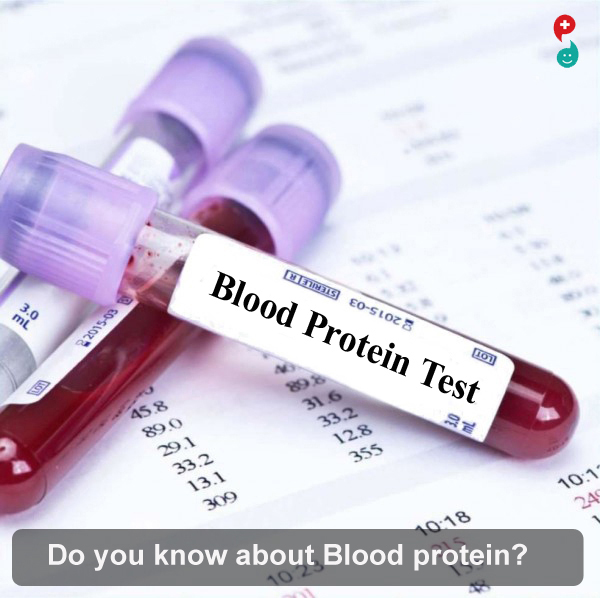
What is this Protein Total Blood test?
Protein Total Blood Test measures the amount of two major proteins albumin and globulins in the blood. Proteins are essential for the proper functioning and growth of the body’s cells and tissues. Albumin is a protein made by the liver which helps in keeping fluid from leaking out of blood vessels. It is the most abundant protein in the blood. Globulins are produced in the liver and also by the immune system to fight against foreign substances. It helps in blood clotting and fighting against infection. Globulins can be divided into 4 categories. They are alpha 1, alpha 2, beta, and gamma globulins.
This test is also known as Serum Total Protein Blood, Sr. Total Protein Blood, Protein Total, Serum Total Protein, Sr. Total Protein.
What Protein Total Blood test is performed?
This test is one among many tests used to evaluate your liver and kidney function. Your doctor may ask to perform this test if you have an existing liver disorder or if you experience any signs and symptoms of liver damage such as yellowing of skin or eyes, dark colored urine, nausea and/or vomiting, itchy skin, lack of energy, weight loss, pain and swelling in the abdomen etc. You may also be advised to perform this test if you have an existing kidney disorder or if you experience any signs and symptoms of kidney damage such as a reduced amount of urine, shortness of breath, weight loss, swelling of legs, ankles, and feet, weakness, confusion etc. Few more additional tests may also be performed along with this test to assess your liver and kidney function.
This test may also be recommended to you by your doctor as part of your regular check up and to diagnose certain conditions such as autoimmune disorders, or certain types of cancer. Your doctor may ask to perform this test during the comprehensive medical panel (CMP) or if you experience any signs and symptoms of nutritional problems such as weakness, weight loss, lack of hunger, extreme tiredness etc.
If you have a family history of liver or kidney problems, your doctor may ask you to perform this test on a 6-monthly basis or a yearly basis. Patients with liver or kidney disorders should perform this test on a regular basis, as instructed by the doctor.
How to interpret the results of Protein Total Blood test?
If the test results fall in the normal reference range generally no medical intervention is necessary. If the test result shows low protein levels in the blood may indicate a problem with liver or kidney function. Signs and symptoms of liver damage are yellowing of skin or eyes, dark coloured urine, nausea and/or vomiting, itchy skin, lack of energy, pain and swelling in the abdomen etc. Signs and symptoms of kidney damage are a reduced amount of urine, shortness of breath, swelling of legs, ankles, and feet, weakness, confusion etc. Decreased protein levels in some individuals may also be a sign of severe malnutrition, a condition where lack of enough nutrients in the body due to a poor diet. Low levels are also seen in individuals where there is no proper intestinal absorption of nutrients due to certain intestinal disorders such as celiac disease (a condition where ingestion of gluten results in damage in the intestine) or inflammatory bowel disease.If the test result shows high protein levels in the blood may indicate infections or inflammation such as HIV, viral hepatitis B or C, or autoimmune disorders such as rheumatoid arthritis. Increased protein levels in some individuals may also be a sign of certain types of cancer such as Hodgkin's disease, multiple myeloma, or malignant lymphoma. If you get abnormal test results it can be due to dehydration, or use of certain medicines.If you have higher or lower than normal levels of proteins in blood consult your doctor for further instructions. Based on the test results, your doctor may advise appropriate medical treatments, lifestyle modifications, or further diagnostic tests.
What precautions should be taken for this test?
Some medicines that may interfere with the protein test results are insulin, steroids like prednisolone, cortisone, anabolic steroids like testosterone, androgens, etc.
What Preparation should be done for this test?
Inform your doctor if you are on any medications, have any allergies or underlying medical conditions before your Protein Test. Your doctor will give specific instructions depending on your condition on how to prepare for Protein Test. No specific preparation is required for this test. However, if it is performed along with any other blood tests, you may need to fast (not eat or drink) for several hours.







